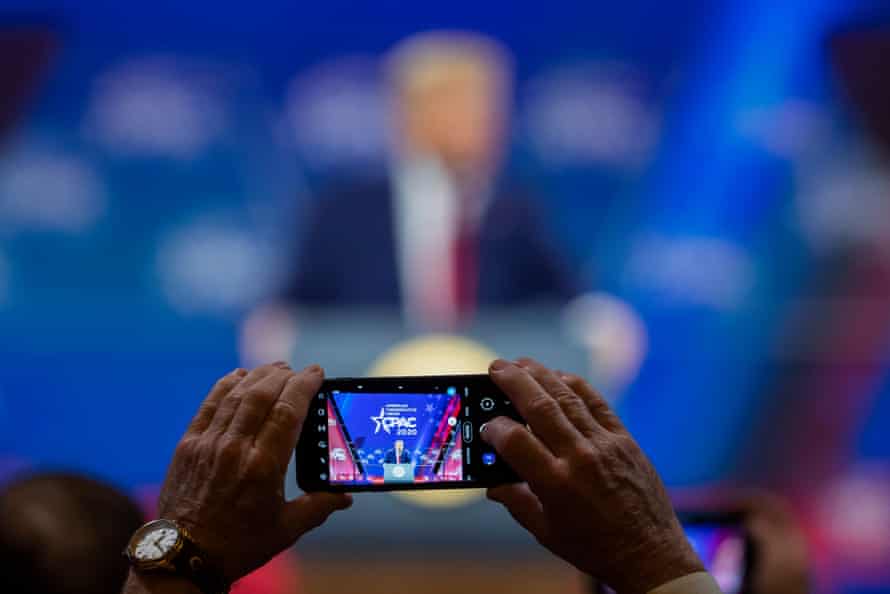Herstel NL dacht de sleutel te hebben, maar sloot zichzelf buiten
Actiegroep Herstel NL pleit voor de heropening van de samenleving en het onderbrengen van kwetsbaren in ‘veilige zones’. De kritiek was fors. Prominente economen Barbara Baarsma en Coen Teulings trokken zich terug. Hoe konden zij zich zo vergalopperen?
Hoofdschuddend kijkt ziekenhuisdirecteur en arts Marcel Levi vanuit Londen in de camera van de liveverbinding waarmee hij aanwezig is bij talkshow Op1. Hij fronst zijn wenkbrauwen. Rolt met zijn ogen. Zijn hele lichaamshouding verraadt dat hij verbijsterd is over wat er wordt gezegd in de studio.
Aan het woord is Coen Teulings, hoogleraar economie aan de Universiteit Utrecht en oud-directeur van het Centraal Planbureau.
Teulings verdedigt vanavond in zijn eentje het plan van Herstel NL, een club van vijftien economen, artsen en andere deskundigen – geen epidemiologen. Vandaag, donderdag 18 februari, is hun campagne gelanceerd met spotjes op de radio, billboards en posters, gefinancierd met crowdfunding. De slogan: ‘Er is een plan waarmee Nederland open kan’. ‘Bier én bingo’ is een van de beloften boven het beeld van een uitzinnige menigte.
Het plan is omstreden, maar Teulings lijkt vastberaden het goed neer te zetten. Kort gezegd komt het hierop neer: Nederland kan vanaf 1 maart weer volledig open, waarbij de kwetsbare mensen worden beschermd door ze af te zonderen in ‘veilige zones’, zoals vakantiehuisjes en hotels. Zo kan de economie weer gaan draaien.
Kalmpjes begint Teulings aan zijn uitleg. De maatschappelijke schade die het coronabeleid aanricht, weegt niet langer op tegen de gezondheidswinst, zegt hij. De rekening die jongeren betalen is disproportioneel.
Maar dan komt de kritiek. Presentator Jort Kelder omschrijft het plan smalend als ‘een soort totalitaire constructie’. Ziekenhuisdirecteur Levi maakt vervolgens fijntjes gehakt van elk argument dat Teulings aanvoert.
Het weghouden van het virus bij ouderen is een illusie, zegt Levi. Toen na de zomer de tweede golf aanzwol in studentensteden, wist het in no time weer zijn weg te vinden in de verpleeghuizen. En waarom ziet Herstel NL over het hoofd dat het virus wel degelijk jongeren raakt? Ze overlijden inderdaad zelden en belanden aanzienlijk minder vaak op een ic, maar long covid kan hen maanden klachten bezorgen.
Voor Levi is het ook een ideologische kwestie. ‘Een beschaafde samenleving kenmerkt zich door solidariteit’, zegt hij. ‘Tussen zieken en gezonden, tussen ouderen en jongeren, tussen de zwakken en sterken. Als we daar nu een splitsing in aanbrengen, gaat de solidariteit verloren.’
Van de ideeën van Herstel NL is na tien minuten nog maar weinig over.
Coen Teulings heeft voor hetere vuren gestaan, als directeur van het CPB loodste hij Nederland eerder door de economische crisis. Maar vanavond lijkt hij te wankelen. Stamelend worstelt hij zich door de uitzending heen. Op Twitter wordt hij na zijn optreden met de grond gelijk gemaakt.
Het zijn de eerste haarscheurtjes in een campagne die de maatschappelijke wind mee heeft. Er lijkt momentum nu opeens overal wordt geconcludeerd dat ‘de rek eruit is’ en de samenleving weer van het slot moet – precies het beeldmerk van Herstel NL.
Het duurt daarna nog vier dagen voordat de implosie van Herstel NL een feit is. Teulings maakt onverwachts bekend dat hij zich terugtrekt, net als het andere boegbeeld, Barbara Baarsma, directievoorzitter van de Rabobank Amsterdam en tevens hoogleraar economie. Zo uitgebreid als ze hun betogen eerder presenteerden in de media, zo summier is hun toelichting nu.
‘Ik was bij de start als meedenker betrokken bij Herstel NL’, schrijven ze in twee identieke berichten op LinkedIn. ‘Mijn rol was argumenten op basis van feiten en onderzoek in te brengen voor goed beleid. Die rol blijf ik vervullen, maar niet langer bij Herstel NL.’ En verder zwijgen ze.
Hoe hebben twee ervaren wetenschappers voor wie de publieke arena bekend terrein is zich zo kunnen vergalopperen?
Actiegroep
Al op zaterdag, twee dagen na het begin van de campagne, trekt de eerste vooraanstaande econoom zich terug. Bas Jacobs, hoogleraar aan de Erasmus Universiteit, laat intern weten dat hij stopt. Zijn naam mag niet langer worden verbonden aan Herstel NL.
In een radioprogramma van BNR geeft hij twee dagen later kort uitleg. Hij staat nog steeds achter de uitgangspunten van het plan. Maar ‘na de publiekscampagne die vorige week is gestart, wordt het toch wel heel sterk een actiegroep’, zegt hij, ‘en daar voel ik me als onafhankelijk econoom niet gelukkig mee.’
Het gekke is: hij had allang kunnen weten dat er posters en spotjes zouden komen. De keuze om een publiekscampagne te beginnen werd al in januari genomen, zegt secretaris Erik-Jan Vlieger van Herstel NL. Maar ondanks herhaaldelijke verzoeken van de Volkskrant wil Jacobs geen nadere toelichting geven op zijn vertrek. Over eventuele druk van buiten of kritiek van collega-economen spreekt hij met geen woord.
Teulings reageert volgens betrokkenen die zaterdag per e-mail op Jacobs’ vertrek: hij respecteert diens standpunt, maar het is niet dat van hem. Sterker nog: Teulings werkt het weekend door aan een publicatie over de vraag hoeveel gezonde levensjaren er verloren gaan per coronaslachtoffer.
Niets wijst dan nog op het naderende vertrek van het volgende boegbeeld.
Veilige zones
De ideeën van Herstel NL bestaan al sinds het begin van de coronacrisis. In het voorjaar van 2020 verschijnt hierover een blog bij economenblad Economisch Statistische Berichten van vier auteurs, onder wie Robin Fransman, de voorzitter van Herstel NL. Hij komt uit VVD-kringen en was hiervoor onder meer toezichthouder bij de Autoriteit Financiële Markten.
Sindsdien denkt een ‘wisselende auteursgroep’ – sommigen haakten af, sommigen aan – na over alternatieven voor het coronabeleid, zegt Fransman. Onder hen Ira Helsloot, hoogleraar besturen van veiligheid, en Eline van den Broek, hoofd Volksgezondheid in het ziekenhuis van de Universiteit in Vermont. In het verleden werkte ze bij de Edmund Burke Stichting, een conservatieve denktank. Ze mailen wat af, wisselen gedachten uit.
In het najaar raken ook Teulings en hoogleraar Barbara Baarsma betrokken. Op 16 december staan ook hun namen boven een opiniestuk in NRC onder de kop: ‘Deze lockdown is disproportioneel’. Het is de publieke aftrap van Herstel NL als genootschap.
‘Ze hebben echt fantastisch meegedacht’, zegt Herstel NL-secretaris Erik-Jan Vlieger terugblikkend. ‘Baarsma zei: we moeten een afwegingskader maken. Nu zijn alle maatregelen enkel op medische leest geschoeid zonder dat alle overige kosten zichtbaar zijn. Dat geluid hoor je nu steeds meer en dat is haar verdienste.’
Dat ze in januari besluiten campagne te voeren, gebeurt nadat het RIVM heeft geweigerd hun plan door te rekenen, zegt Vlieger. ‘Er werd weinig met onze beleidssuggesties gedaan. Toen hebben we ons afgevraagd: hoe kunnen we dat keren? Zo kwamen we op het idee van een campagne.’
Niet alle betrokkenen zijn even enthousiast over alle aspecten van het plan. Zo ziet Bas Jacobs bijvoorbeeld veel in de inzet van (snel)testen om sectoren te openen, iets waar Herstel NL opvallend genoeg erg tegen is. Maar volgens ingewijden heeft de club één gemeenschappelijke drijfveer: ze ergeren zich eraan dat de maatschappelijke en economische schade in hun ogen nauwelijks meeweegt in het coronabeleid. ‘Faillissementen, leerachterstanden, uitgestelde zorg, depressie, werkloosheid. Nooit eerder offerden zovelen zo veel op voor zo weinig’, aldus Herstel NL op de eigen website.
Deze analyse is op zichzelf niet omstreden. Sterker nog, die wordt steeds breder gedeeld. Dat blijkt ook uit het feit dat Herstel NL via crowdfunding binnen een week bijna twee ton ophaalt bij ruim zesduizend particulieren.
De gevoeligheid schuilt in het alternatief dat Herstel NL aandraagt: ‘veilige zones’ inrichten waar ouderen, chronisch zieken of anderen zich kunnen terugtrekken. Uit vrije wil, benadrukken de initiatiefnemers telkens. Om kwetsbaren te vervoeren of op te vangen zijn ‘leegstaande taxi’s, hotels en vakantiehuizen’ te gebruiken. Verder werken kwetsbaren ‘of vanuit huis of gaan ze tijdelijk in de ziektewet’.
Deze segregatie is geen detail, het is de crux van het plan. Maar hoe vrijwillig is afzondering, als het buiten de veilige zones voor de kwetsbaren levensgevaarlijk kan zijn? Want ‘buiten is alles mogelijk’, schrijven de initiatiefnemers. Bovendien mogen ook niet-kwetsbaren zich in veilige zones begeven.
‘Het idee dat je de samenleving eventjes in twee groepen kunt splitsen, de kwetsbaren op een eiland en de rest vrolijk z’n gang laten gaan, dat is niet werkbaar, dat kan niet. En al kon het, dan moet je dat niet willen’, zegt demissionair minister Hugo de Jonge dinsdag tijdens de wekelijkse persconferentie. ‘Het zou levensgevaarlijk zijn.’
‘Wat wil die groep nou’, vroeg ziekenhuisdirecteur Levi zich eerder af in het Algemeen Dagblad. ‘Bejaarden in een reservaat stoppen, zodat wij naar festivals kunnen en lekker kunnen shoppen?’
Rekenmachine kwijt
Het is zondagavond als de volgende publicitaire klap zich aandient. In Zondag met Lubach wordt Herstel NL genadeloos gefileerd. Twee miljoen kijkers zien hoe vooral Teulings ervan langs krijgt. Zijn uitspraak dat corona nauwelijks meer slachtoffers maakt dan de griepepidemie van 2018 wordt – terecht – gediskwalificeerd als ‘onzin’. ‘Als je stopt als CPB-directeur, dan pakken ze al je rekenmachines af’, zegt Lubach.
Op diezelfde avond geeft Barbara Baarsma een interview in Humberto op RTL 4. Vurig verdedigt ze de ideeën. Maar tijdens de uitzending is te zien dat ze zich in het nauw gedreven voelt door alle kritiek. Ze zegt dat Herstel NL wordt geframed. ‘Waar ik écht aanstoot aan neem’, zegt ze, ‘en wat mij ook ráákt, is dat je met zo’n goed wetenschappelijk doordacht alternatief komt en dat dit dan wordt weggezet als: geef die oudjes een ophokplicht.’
De directievoorzitter van Rabobank Amsterdam vertelt dat ze de afgelopen tijd ‘allerlei heel nare reacties’ heeft gekregen. ‘Je merkt gewoon dat er wordt gezegd: jullie zetten aan tot een tweedeling in de maatschappij’, zegt ze emotioneel. ‘Dat is iets waar wij écht last van hebben.’
‘Ik ben vertrokken’
Maandag gaat het mis.
Rond 6 uur ’s avonds krijgt Herstel NL-voorman Fransman telefoontjes van Teulings en Baarsma. ‘Ze zeiden dat ze van vele kanten waren benaderd met het dringende verzoek de campagne te staken tot na de verkiezingen’, vertelt Fransman. ‘Anders zouden er politieke ongelukken komen. Er kon een heel dreigende situatie ontstaan, zeiden ze.’
Wat die dreiging precies inhield? ‘Het dreigingsbeeld was zo absurd, dat ik dit niet wil herhalen. Het zijn zulke onbetamelijke en ongegronde beschuldigingen aan het adres van personen dat het zou neerkomen op laster. In elk geval zeiden ze: als we de campagne niet staken, stappen we eruit.’
Van wie die ‘dringende verzoeken’ kwamen? ‘Dat heb ik natuurlijk gevraagd’, zegt Fransman, ‘maar dat wilden ze niet zeggen.’ Herstel NL-secretaris Vlieger meldt dat de verzoeken van ‘topambtenaren’ zouden zijn gekomen.
Fransman twittert die avond om 20.47 uur: ‘Wij zijn benaderd door kringen rond het kabinet met het verzoek om de campagne van Herstel NL tijdelijk te staken tot na de verkiezingen. Daar gaan we ons vanavond over beraden.’ Erg consistent is de uitleg niet. De ‘wij’ zijn hier dus Teulings en Baarsma, de ‘topambtenaren’ heten nu ‘kringen rond het kabinet’.
Meteen roept Fransman het bestuur en de raad van toezicht online bijeen om zich te beraden. Het gesprek duurt zo’n twee uur, maar voor de betrokkenen is het duidelijk: ze gaan niet zwichten onder de vermeende druk van hen onbekenden.
Het is een ‘vaag verhaal’, zegt een betrokkene die deelnam aan de online vergadering. ‘Maar we hadden geen reden eraan te twijfelen. Niks leek er eerder op te wijzen dat Teulings en Baarsma zouden afhaken. Ze hadden niks getekend. Als ze er klaar mee waren geweest, hadden ze net als hoogleraar Bas Jacobs voor de koninklijke weg kunnen kiezen.’
Maar nog tijdens de vergadering gebeurt er iets opmerkelijks; Baarsma en Teulings wachten de uitkomst niet af. ‘Barbara belde me terwijl we nog aan het vergaderen waren’, zegt secretaris Vlieger. ‘‘Ik ben vertrokken’, zei ze. ‘Wil je me van de website halen?’
Even later plaatsen Baarsma en Teulings de identieke verklaring op LinkedIn waarin ze hun vertrek bij Herstel NL wereldkundig maken.
Pittige e-mail
Vanuit Den Haag wordt politieke of ambtelijke druk in alle toonaarden ontkend. Betrokken ministers als Hoekstra (Financiën) en Van ’t Wout (Economische Zaken) doen het verwijt af als onzin.
Dat getracht zou zijn critici monddood te maken, is koren op de molen van de aanhangers van Herstel NL. Maar kwam er werkelijk druk vanuit overheidskringen? Zouden zwaargewichten als Teulings en Baarsma dan niet nog diezelfde avond gepikeerd zijn aangeschoven bij een talkshow om man en paard te noemen? En waarom zouden wetenschappers die vol overtuiging deel uitmaken van een initiatief van tegendenkers zich überhaupt het zwijgen laten opleggen?
De zaak wordt al helemaal vreemd als Baarsma en Teulings dinsdagmiddag opnieuw een identiek bericht op LinkedIn plaatsen. Beiden ontkennen expliciet de druk die ze volgens Fransman als reden gaven voor hun vertrek. Dit is ‘op geen enkele wijze het geval geweest’, schrijven ze. Ze zijn vertrokken op grond van hun eigen afweging om ‘vanuit een onafhankelijke positie argumenten in te brengen op basis van feiten en onderzoek in de maatschappelijke dialoog over goed coronabeleid’.
De Volkskrant vroeg zowel Baarsma als Teulings om een toelichting. Beiden weigerden.
Rabobank Nederland bevestigt noch ontkent Baarsma op haar betrokkenheid bij Herstel NL te hebben aangesproken of zelfs te hebben verzocht die betrokkenheid te staken. ‘De betrokkenheid van Barbara Baarsma bij Herstel NL was op persoonlijke titel’, luidt slechts de reactie.
Werd het Teulings en Baarsma te heet onder de voeten? Zeker is dat Arnoud Boot hen maandagmiddag ‘een pittige e-mail’ stuurt. Boot is hoogleraar financiële markten aan de Universiteit van Amsterdam en kent zowel Baarsma als Teulings goed. Hij zat in Baarsma’s promotiecommissie, met Teulings had hij tijdens de financiële crisis bijna dagelijks contact. Ze zullen het niet persoonlijk opvatten, denkt hij dan, dat hij de morele plicht voelt hen als collega te corrigeren.
‘Inhoudelijk kan ik me goed voorstellen dat je kritiek hebt op de schoolsluiting en dat je vindt dat er alles aan moet worden gedaan om dat terug te draaien’, zegt Boot. ‘Dat is een legitiem standpunt, dat is een zorg die ik deel. Maar waarom ik maandag heb geïntervenieerd, is vanwege de ontsporing van hun betoog in het publieke debat. Er staan allerlei dingen op website van Herstel NL waarvan ik me afvraag of ze die hebben gelezen. Want ik kan me niet voorstellen dat ze daar achter staan.’
Vanwege hun betrokkenheid bij Herstel NL zijn Baarsma en Teulings onderdeel van het probleem geworden, zegt Boot. ‘In plaats van het maken van een genuanceerde afweging van de pro’s en contra’s van bepaalde beleidsopties, hebben ze zich in de hoek laten dringen met een absoluut standpunt. Het opdelen van de maatschappij in bevolkingsgroepen heeft dermate vergaande economische, sociale en psychische consequenties dat er voor een belangenafweging geen ruimte meer is. Dan voer je het maatschappelijk debat precies verkeerd.’
Boot kreeg van beiden naar eigen zeggen een ‘constructief antwoord’. Welke impact zijn e-mail heeft gehad op de beslissing van de twee om op te stappen bij Herstel NL, durft hij niet te zeggen. ‘Maar ik heb in elk geval getracht het zo zwaarwegend mogelijk te formuleren en ik krijg de indruk dat ze er verstandig mee zijn omgegaan. Ze hebben vast meerdere signalen gekregen, ook van andere collega’s. Misschien was mijn bericht een klein element, maar gelet op het vervolg kwam het wel precies op het juiste moment.’
Baarsma en Teulings hebben zichzelf verslikt, vermoedt Boot. ‘Als je zes mensen bij elkaar zet die ook nog eens de media als vijanden zien, ontstaat groepsdenken en word je meer geneigd je eigen mening te verdedigen dan die te herzien. Signalen van buiten komen dan onvoldoende binnen. Dat is heel menselijk en overkomt ons allemaal, maar dan is het extra belangrijk dat er iemand is die op een bepaald moment ingrijpt.’
Boot benadrukt dat hij absoluut niet van mening is dat wetenschappers het kabinetsbeleid klakkeloos moeten steunen. ‘Integendeel, het debat over dat beleid moet worden gevoerd, ook door economen. Kritiek moet er zijn. Maar kritiek moet effectief zijn, en dat was het niet meer. Als wetenschapper moet je boven de materie hangen en altijd afstandelijkheid weten te betrachten in het debat. Nu zetten ze zichzelf volledig klem – en dat slaat ook terug op onze economische professie.’
Toch kan secretaris Erik-Jan Vlieger zich niet voorstellen dat Teulings en Baarsma zich hebben verkeken op de inhoud van het plan van Herstel NL. ‘Coen heeft nog meegeschreven aan de eerste versie van de teksten op de website. Hij kende alle ins en outs. Dat we inzetten op het beschermen van kwetsbaren in veilige zones was hem zeker duidelijk.’
‘In de dynamiek tussen gewetensnood en sociale druk is het moeilijk het hoofd koel te houden’, zegt voorzitter Fransman.
De campagne gaat door, maar Herstel NL blijft beschadigd achter. Het vuurwerk dat ze met de klappers Baarsma en Teulings in handen hadden, is in hun handen ontploft. ‘Natuurlijk is het vertrek van twee prominenten voor ons een aderlating’, zegt secretaris Vlieger. ‘De autoriteit van ons initiatief ontlenen we aan onze mensen. Die autoriteit is nu afgenomen.’






